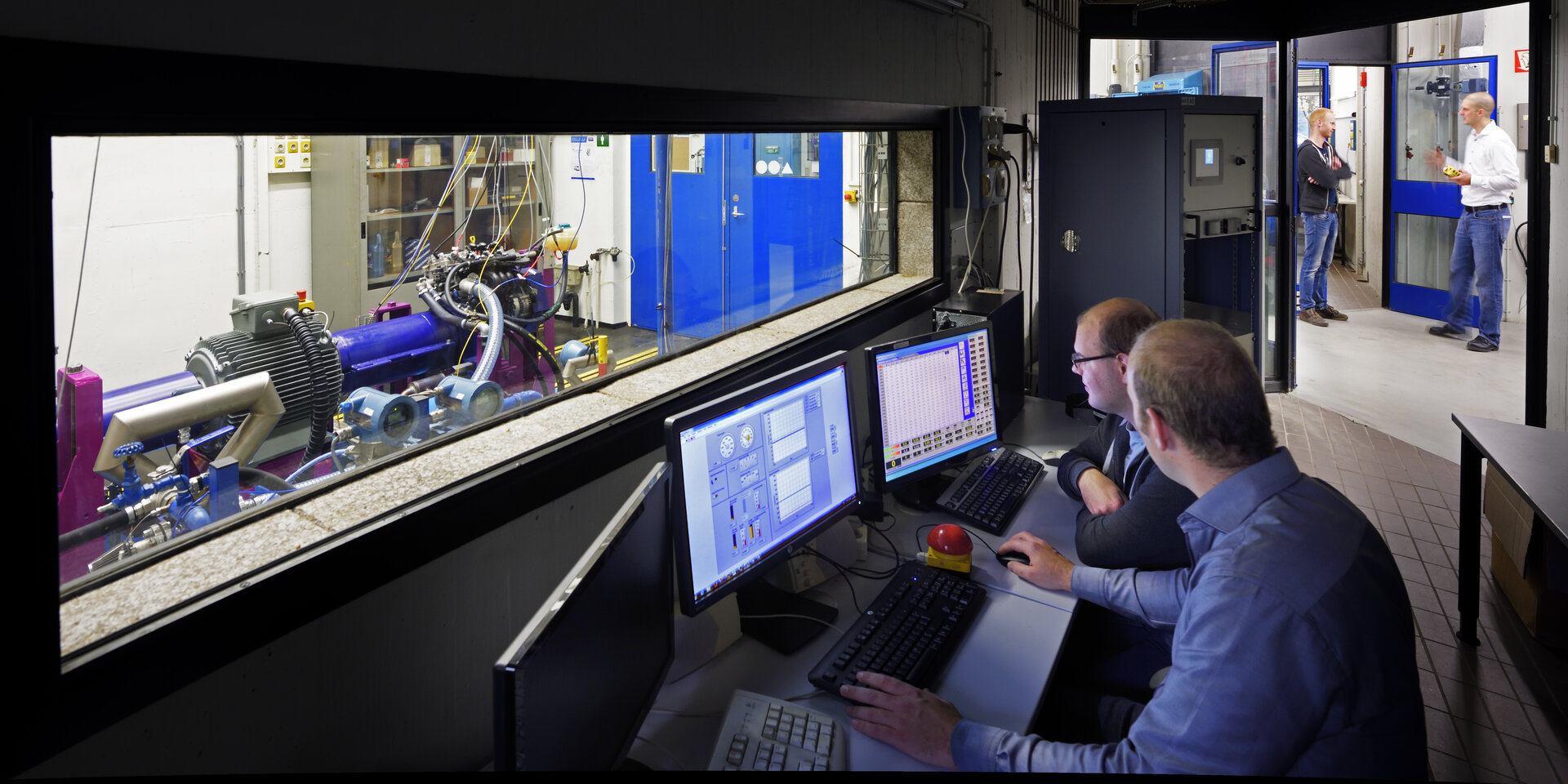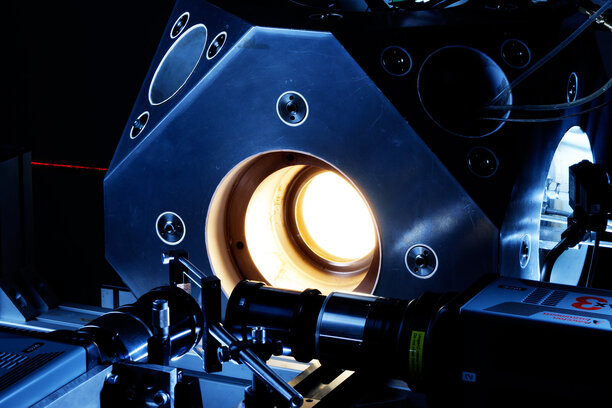Future Fuels Lab
In the Future Fuels Lab scientists are researching green fuels and cleaner combustion methods for engines.
Fuels of the future
Fossil fuels are becoming increasingly scarce yet life without them is inconceivable, now and in the foreseeable future. Another problem of increasing urgency is the emission of particulate matter and greenhouse gases by road traffic. Consequently, the ideal combustion engine consumes little fuel and emits few if any soot particles. These requirements are hard to reconcile in today's engines. A game changer is needed, a combustion engine that can run on a broad spectrum of alternative, green fuels.
New combustion methods
The Future Fuels Lab offers unique research facilities for tackling this challenge. Here, researchers are working on new combustion methods, in combination with green fuels. They alone in the Netherlands are seeking green solutions for road freight, for which electrical power is not an option. They are studying, for example, methods enabling combustion engines to run cleanly and efficiently on a mixture of diesel and all sorts of renewable fuels. Using flamelet generated manifolds (FGM), a calculation method developed at TU/e, researchers can calculate in detail which chemical reactions are taking place in a combustion engine. Designed for use in improving combustion methods, FGM is now being applied worldwide.
Unique chain of experimental setups
Clean and efficient combustion cannot be achieved without a thorough understanding of the combustion process. A unique feature of the Future Fuels Lab is its sequence of experimental setups with which the processes can be studied step by step. Developed in-house, this chain starts with a unique setup to measure the combustion speed of fuels (the ‘Heat Flux Method’ (HFM) and a revolutionary precision-regulated combustion chamber that has no pistons (Eindhoven High Pressure Cell, EHPC)), for the most fundamental research. The last link is a full combustion engine for experiments closely related to the application of new automotive technologies.
Heat Flux Method
The HFM setup was developed at TU/e and is world widely accepted as ‘the method’ to measure the important property of fuels - its combustion speed - most accurately. The combustion chamber for fundamental research (EHPC) is the only one of its kind in the world. With this facility, TU/e is part of global cooperative alliance of top institutes. The combustion chambers and some engines are optically accessible: the internal workings can be observed. Using various laser-based methods, these facilities record the chemicals released during combustion and when soot particles are created.

Partners and external parties
The research groups Multiphase & Reactive Flows, and Control Systems Technology both have connections with the Future Fuels Lab. Here, they conduct their research cooperatively with various research centers and industrial partners, such as DAF, Shell, TNO, Volvo and others. External parties may also use the research facilities. Those interested should contact Niels Deen.
Visit our other state-of-the-art labs and facilities
Contact us
-
Lucas FarahAdam HooiArentstraat7825VC Mierlo
